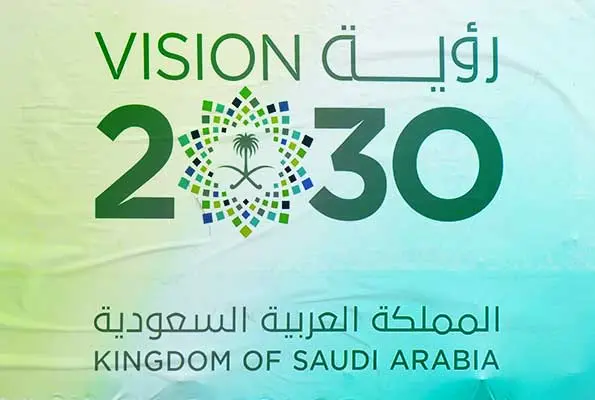As the massive reforms of Vision 2030 go into effect and drastically alter the Saudi Arabian economy, construction, and real estate are about to experience a golden age of prosperity. A comprehensive analysis authored by Quality Media Press and scheduled for release next month will explore the housing boom, large-scale initiatives such as NEOM, and how the industry is profiting from billions of dollars in government funding.
The three major objectives of Vision 2030, which was unveiled by Crown Prince Mohammed Bin Salman in 2016, are to increase employment possibilities for women and young people, promote new sectors, and lessen reliance on oil. The Kingdom’s largest cities are being completely transformed by massive development projects, which are already having an impact.
As the capital of Saudi Arabia grows beyond its customary boundaries, cranes can be seen dotting the skylines there. Meetings between foreign investors and local partners are a buzz in luxury hotels. It seems like new apartment buildings and retail centres open every week. Riyadh will see more construction as it gets ready to host Expo 2030 and parts of the FIFA World Cup in 2034.
Communication with the government is now much easier thanks to digitisation efforts. The new regulations that support Vision 2030 are easier for citizens and residents to navigate.
Notably, significant “giga projects” such as NEOM are garnering international interest. Situated on 10,000 square miles, this $500 billion sustainable mega-city is slated to have a floating industrial zone, tourism amenities, and The Line, a 110-mile linear urban development powered solely by renewable energy.
As development costs reach the hundreds of billions, the real estate market has surged. Official goals are to develop the mortgage industry and increase homeownership by 70 per cent. Young professionals are purchasing their first houses as businesses open in a nation that is modernising quickly, and there is an increasing need for upscale office space.
Mohammad Al Habib Real Estate, a business that has been operating in the Kingdom for more than 50 years, has greatly profited. With initiatives like the 1,500-unit record-breaking Kaheel complex in Riyadh, the company is well-positioned to profit from the soaring demand.
CEO Abdullah Al Habib says that the government’s assistance has been essential, saying that “Vision 2030 gives the private sector opportunities we couldn’t have initiated before.”
In a similar vein, the massive construction company Built Industrial has expanded its portfolio beyond government contracts to work on projects involving hotels in NEOM. CEO Mohammed Asiri attributes his company’s expansion to Vision 2030’s ability to bring in new customers and market segments.
Speciality players are also discovering chances. The landscaping expert AF Group began working on NEOM’s preliminary ideas and is part of Green Riyadh’s massive tree-planting effort. CEO Abdullah Alothman claims, “The government supports Saudi talent – it’s helped our success.”
Unprecedented insight into the part each sector is playing in achieving Vision 2030 will be available in the soon-to-be publication. Industry leaders are optimistic about the long-term advantages the reform effort would bring to Saudi Arabia’s economy and society, even if significant development is still ongoing.
Homeownership Skyrockets
Saudi Arabian home ownership is expected to rise following the Real Estate Development Fund’s March deposit of SR963 million ($256.7 million) into Sakani recipients’ accounts.
According to the Saudi Press Agency, the Ministry of Municipal and Rural Affairs and Housing was in charge of distributing the funds to the recipients.
By offering inexpensive housing options and financial support, the Sakani programme makes homeownership more accessible, especially for those who have difficulty entering the housing market.
The fund’s CEO, Mansour bin Madi, explained that the entire amount of help for March was allotted to increase the earnings from different housing support contracts.
He emphasised that since the transformation scheme was announced in June 2017 and up until March, a total of roughly SR57.5 billion has been deposited into the Sakani beneficiaries’ accounts.
According to Bin Madi, the continued efforts to help recipients own appropriate housing in collaboration with financial institutions are confirmed by the housing support’s continuance.
This is consistent with reaching the goals of the housing programme, which is one of Vision 2030’s components. These goals include increasing the percentage of citizens who own their homes to 70% and offering sustainable housing and financial solutions by enacting laws and developing supportive structures.
Via the fund’s internet portal, REDF provides housing assistance services across more than forty-three digital platforms.
Furthermore, the Real Estate Advisor portal offers the “Design Your Support” option, which enables beneficiaries to customise their housing support and obtain the best financial and housing suggestions.
Additionally, beneficiaries’ queries and enquiries are answered by the combined call centre and social media platforms.
By providing financing choices including rent-to-own and mortgages, the Sakani plan has revolutionised the Saudi Arabian housing industry and allowed its inhabitants to realise their dream of becoming homeowners.
It helps first-time purchasers by easing financing and offering advice at every step of the way.
In addition, the project highlights the effects of the housing programme by addressing the need for citizen housing and encouraging community development around the country.
Sakani plays a crucial role in influencing the future of Saudi Arabia’s residential landscape by transforming the housing sector and supporting larger community development efforts through creative services and financing choices.



